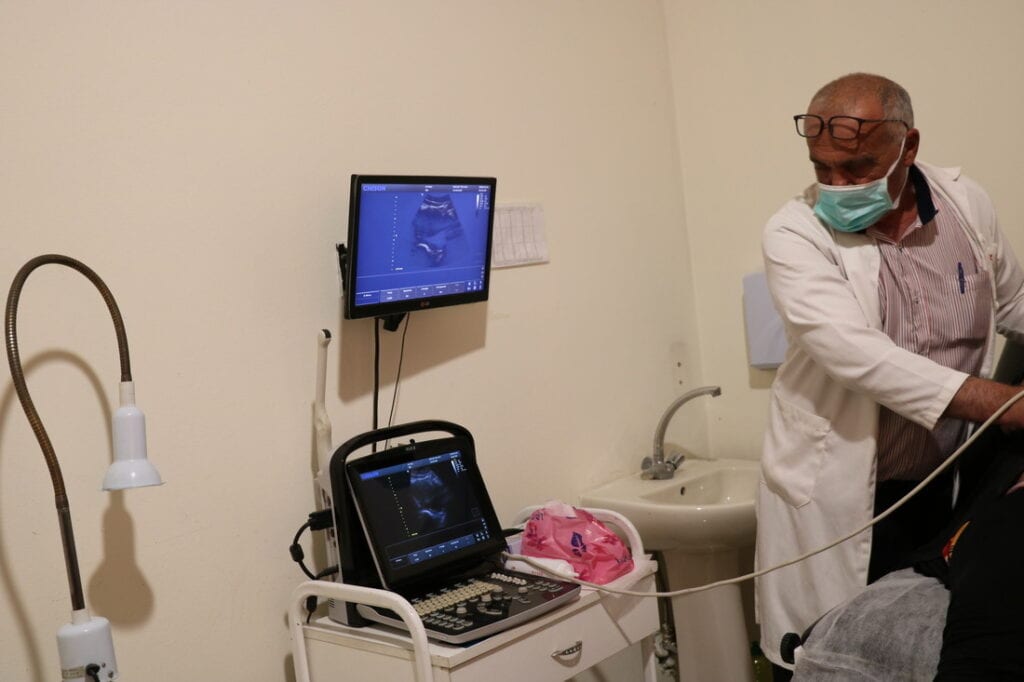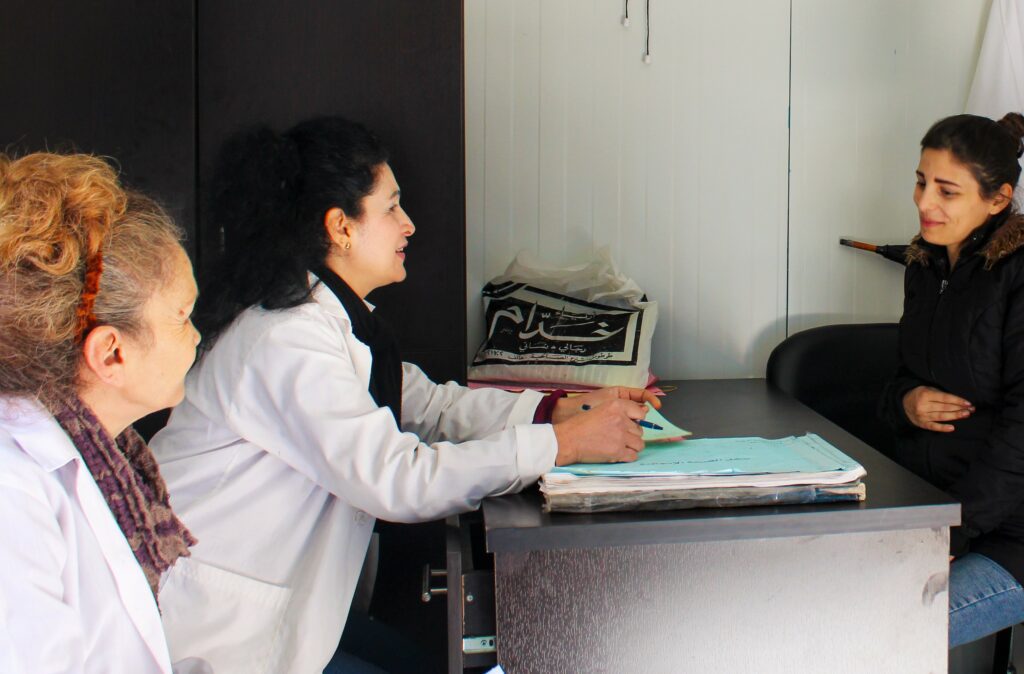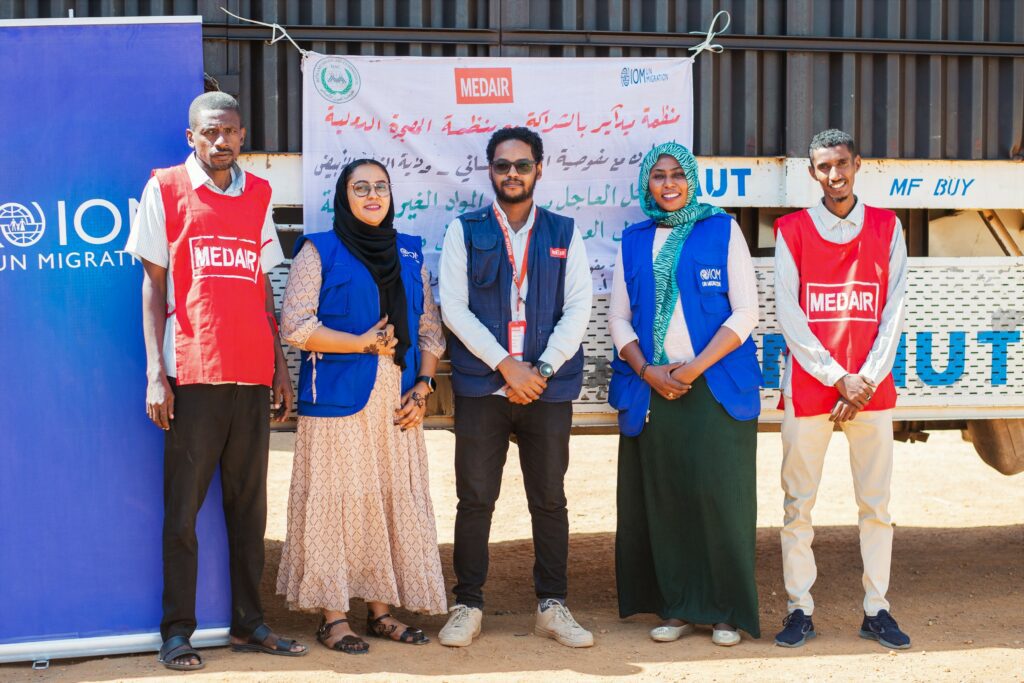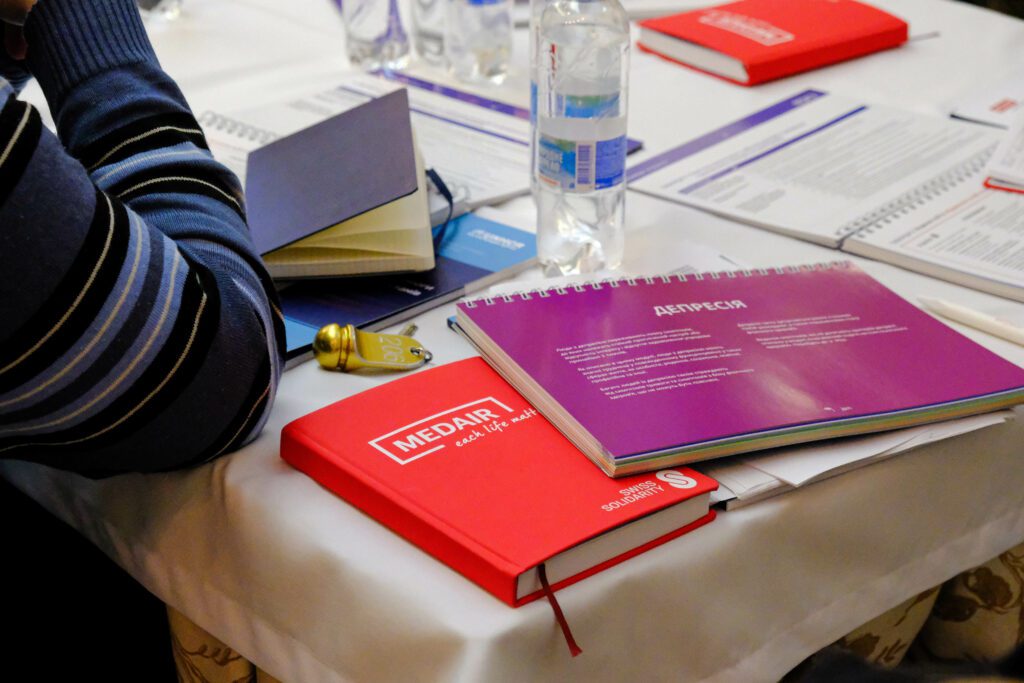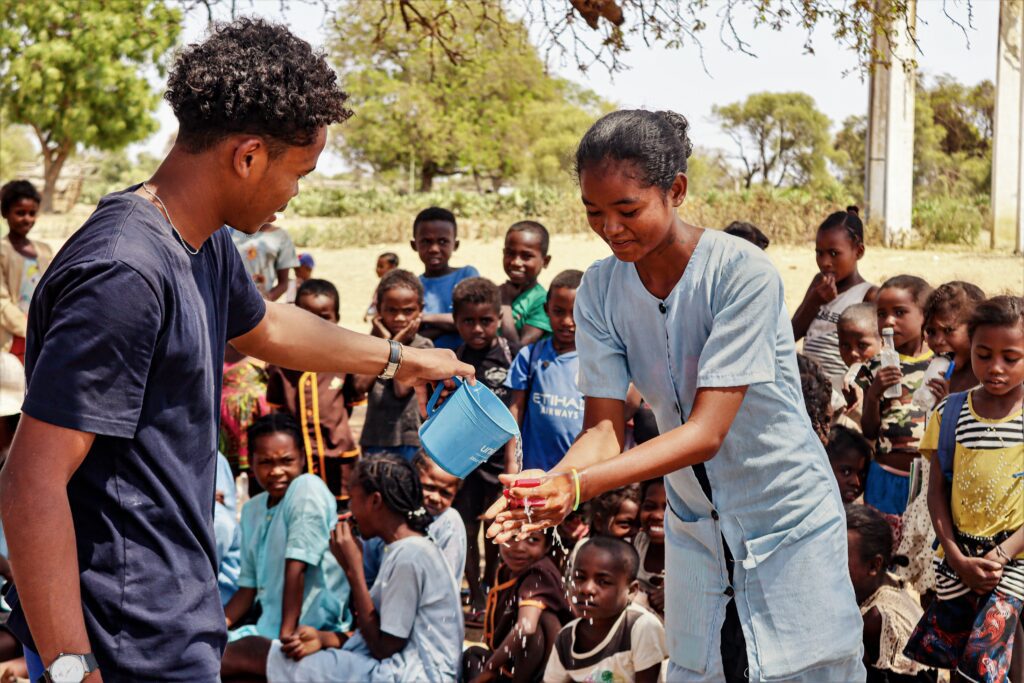I met Fatima at the clinic during a women’s gathering with Kholod, Medair’s Psychosocial Support Officer in the Bekaa Valley, Lebanon. After the lockdown lifted in June, Medair teams gradually resumed face-to-face sessions after more than two months of supporting people virtually via WhatsApp messages. Kholod led a group of five women in a discussion on stress and anxiety, especially during the pandemic.
“I decided to come to these sessions to talk and challenge myself out of my misery. I will always look for ways to express my feelings and help women around me do the same. I keep a journal where I write and draw; I have three full journals that maybe one day will turn into my life story,” Fatima expressed by the end of the session. “Now, I will wait to visit the gynecology clinic and ask many questions I have after becoming a mom for the first time. My relatives in the settlement [where Fatima lives] told me that there’s a midwife in the clinic, and she will teach me a lot.”
While she waits for her turn in the waiting area, we talked.
“I was happy with this session today, these women are so strong,” Fatima said, “It is relieving to talk and listen to each other. When I hear their stories, I feel that I’m not alone. They help me grow stronger.
“I’m still so young to be a mother. I didn’t have the chance to know what childhood is. When we fled Syria back in 2016, my mother, father, seven siblings and I arrived in Lebanon and lived in a tiny tent, where we all slept together in the same room. I will never forget the first night. We used to live in a house – I mean a proper house in Syria, with doors, windows, polished walls, neat furniture, and a colorful garden – The missile took away our home and put us in this a small cube of wood and plastic sheet [the tent]. That night, I closed my eyes to sleep, I felt like [I was] sleeping on the street.
“The first year was very, very hard. My father tried to find work, and as the oldest child in the family, I had to go to work as well. I was 13, and instead of going to school, I found myself standing in front of a big factory. My work was to stand and cook Turkish delight all day long. The job was hard. Halfway through the 10 working hours, I couldn’t feel my legs on the floor. But then, I remember that the 200,000 LBP*(equivalent to $120 then) I gained from this work each month will bring food to my siblings and parents. I worked for around 20 months at that factory.
“One day, I came back home to hear people in the settlement congratulating me on becoming a bride. I couldn’t understand. On that day, I got engaged to a man that I didn’t know. No one asked me if I agree. They agreed for me. It was and will always be the saddest moment of my life.
“Before, I had a dream,” Fatima continues.
“I wanted to work hard and go back to school and become a doctor. I wanted to heal people’s sufferings. I wanted to help those I saw dying in Syria. I wanted to heal my mom, who delivered and raised eight kids. And since then, I felt that my dream is dying with time.
“The moment Rama came to life she brought all the light of the world with her. She is my sun and moon, and maybe, one day, she will be the doctor I wanted to be. She is already. She is healing my wounds. She will teach me how to be a mother, and I will teach her to be a strong woman who pursues her dreams,” Fatima paused for a while but couldn’t hold back her tears from running down her face. “God was and will always be my companion. I thank God that my daughter and I are healthy and that I can come here [the clinic] to take care of myself – not only my body, but my mind as well.”
Then, it was Fatima’s turn to see the gynecologist for a general check-up and her chance to ask the midwife her questions. She came out with a broad smile and a gift box full of hygiene products. “Everything is okay, thank God,” Fatima said, “The doctor asked me to take some multivitamins for a while, and keep on exclusive breastfeeding for at least 6 months.”
“To encourage women to take care of their reproductive and sexual health, we provide a comprehensive free post-delivery consultation for women who visit the clinic within 40 days of delivery,” says Christine, Medair’s Health Officer. “Women receive a hygiene kit that has a lot of essentials for the mom and baby, like diapers, daily pads, tissues, and wet napkins.”
Medair supports five health clinics in the Bekaa Valley by subsidizing general, pediatric, and reproductive healthcare. Pregnant women receive four pre-delivery consultations and one post-delivery consultation for free. Fatima is one of the thousands of women who find the clinic a place to look after their health and the health of their families. It is a place to educate herself on reproductive health, family planning, and healthy family relationship.
Within the clinics and informal settlements women can attend psychosocial support activities where they are encouraged to speak up, express themselves, learn, and influence their community.
“Today, in my journal, I will write about my first doctor visit after I delivered Rama,” Fatima said. “I will write that on this day I was courageous enough to say that I wanted to be a doctor. Maybe I won’t be able to study again, but at least I remembered that I have dreams, and this is the time to dream again.”
She picked the multivitamins from the clinic pharmacy and left with her baby girl.
Medair’s support of health clinics in the Bekaa Valley are supported by Global Affairs Canada in partnership with Tearfund Canada. Psychosocial support activities are funded by the European Union ‘Madad’ Trust Fund.
*Names changed.


